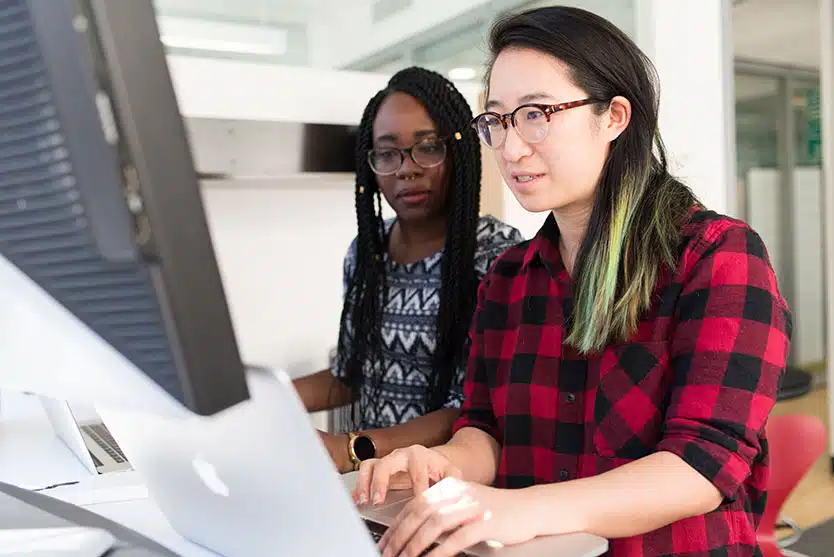
Kids and parents tend to have different reasons for learning how to code. For parents, they usually want their children to have a fun, productive extracurricular activity to do after school. Something that puts a smile on their face but also teaches them STEM skills and gives them the tools employers will look for one day.
Children seldom look this far ahead, and their reasons for embracing coding differ. Basically, it’s fun! You wouldn’t ask kids why they advocate playing tag, watching movies, or playing video games. Learning to code has a bit of each of these things in it.
Let’s check out how and why kids can advocate for coding at their school among their peers.
The live online coding classes at RP4K revolve around showing kids how to program and design their own video games — in other words, there’s fun at the heart of what we do. Our instructors know how to make creating a video game feel like playing one.
The lessons incorporate gamification dynamics, harnessing what makes playing video games so engaging but for learning purposes.
Kids will never be “brand ambassadors” or “influencers,” nor should they be! They don’t “advocate” or promote things because, in their minds, they don’t see it that way. They just talk to each other about what they enjoy doing.
These kinds of natural, unselfconscious references are the highest form of advocacy. When kids and teenagers speak to each other, they are honest because they have no reason to lie. The joy of learning to code and improving your programming skills in our school season coding courses gets kids talking.
Once the coding work is over, kids love playing with their creations. We introduce coding to children as young as seven by showing them how to create their own video games.
As they get older, the video games they build get more sophisticated. Kids feel proud when they can go beyond pointing to an accomplishment of theirs and actually play with it with their friends. Imagine a child answering the question “What did you learn?” by pulling out their Pac-Man-style game and letting a buddy take a turn playing.
As they get older and improve their skills, they create better games to demonstrate to friends. They’ll learn how to create custom Minecraft modifications. Eventually, they can use the skills they learn at RP4K to build websites, apps, and video games professionally.
Years ago, schools taught computer skills like typing. Digital technology plays a massive role in daily life, and integrating coding into the school curriculum is becoming more common.
RP4K students will be more than prepared for any coding sessions they do in school. Our advanced courses teach object-oriented programming fundamentals like inheritance, camera manipulation, chasing algorithms, reading and writing to text files, devices, overriding, and overloading. They also learn more advanced trigonometry, such as pitch/yaw/roll and matrices.
In our elite courses, high school students encounter math concepts they wouldn’t otherwise see until their first year of university.
Knowing these fundamental coding skills helps them navigate and interact with the modern world of digital technology. Employers also look to hire applicants with serious programming skills.
But before these considerations enter the equation, when kids learn how to code when they’re young, they’ll be prepared for classes to the point other students lean on them for help.
It’s rare for students to love math or history so much that they get together in their spare time to get deeper into these school subjects. Things change when the subject is computer coding!
Kids talk about video games at recess and after school, including how to build them. Coding blurs the lines between play and productivity.
Children don’t always embrace the fundamental subjects that parents want their kids to know so they’re ready for the workforce of the future. Making them learn dry, boring subjects can feel like making them eat vegetables.
Coding is different because it revolves around creating video games, and our classes also use gamification concepts to make the sessions more engaging. You won’t have to push coding classes on your children because they’ll want to take them.
Likewise, coding students will talk to each other about their progress and insights when class is over. This kind of natural enthusiasm can draw in their peers who haven’t learned how to code.
Kids talk about what they’re interested in and what they’re doing lately. They don’t need to identify as programming advocates. They just need to enjoy coding. Then, they’ll be busy programming in their free time, and it’ll come up naturally in conversation with their peers.
That’s what being a coding advocate is all about!
Regrettably, fields like computer engineering and computer sciences have historically skewed male. This is true of the past, and while we’re making strides to open programming and coding up to girls, there’s still far to go.
RP4K believes that computer coding should and must be for everyone. We’ve taught many young girls and teens since our founding in 1999, and we continue to promote coding as a universal good.

Everybody lives in a highly advanced digital world, and it’s unhealthy and imbalanced for society in general for only half the population to know how to work with the code underlying this technology. We’re proud to teach anyone who signs up for lessons, and we feel strongly that coding should be welcoming to everybody.
RP4K knows what kids are naturally interested in and what they aren’t. We’ve spent years revising and updating our curriculum to keep kids more engaged. Since the start of the COVID-19 pandemic, we’ve invested lots of time and money into better technology to improve remote sessions, and the results are in.
Kids love it when learning is fun. When video games are the centre of what they do, they take to the activity naturally. Likewise, we know coding students become natural advocates the deeper they get into the subject and the more fun they have.